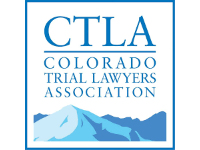
Call Us 24/7 For A Free Legal Consultation






2015 was not a good year for motorcyclists, as there was a ten percent increase in motorcycle fatalities across the nation. The number of motorcyclists killed in U.S. roadways in 2015 was close to an all-time high at more than 5,000. The numbers were also a full ten percent higher than 2014 statistics. The primary reasons given for the significant increase in motorcycle fatalities included:

Motorcyclists are extremely vulnerable when in an accident with a driver of a vehicle. Those on motorcycles don’t have the benefit of a steel cage around them, not to mention airbags and safety belts. In fact, motorcyclists are 27 times as likely to die in collision than those in vehicles. Because serious head injuries are common among motorcyclists who are in a serious accident, helmet use is extremely important.
Statistics show that motorcycle helmets are about 37 percent effective in preventing motorcycle collision fatalities and 67 percent effective in preventing brain injuries. Yet, as it stands, only 19 states and the District of Columbia currently require that all motorcyclists wear helmets (some states, such as Colorado, require motorcyclists or passengers 17 and younger to wear a helmet). In the state of Michigan, following the repeal of the helmet law in 2012, the state saw a 23 percent increase in motorcycle fatalities.
The risk of motorcycle crashes—and motorcycle fatalities as a result of those crashes—is compounded by other factors besides helmet laws. Alcohol and drug use, increased speed limits and the sheer number of vehicles on American roadways are all contributors to motorcycle fatalities. About half of all motorcycle accident fatalities involve some level of alcohol use. One issue which is not often discussed in relation to motorcycle collisions is demographics. Several studies have concluded that middle-aged motorcyclists are more and more often killed in traffic collisions.
Those in the 50-59-year-old age range represent about 22 percent of those involved in motorcycle fatalities. It is believed that rusty motorcycle riding skills and motorcyclists who are unable to handle the much higher-powered motorcycles are also a factor in motorcyclist fatalities. Those in the 20-29-year-old age range represented an even higher number of fatalities—26 percent. Some believe that this age group may have more bravado than actual motorcycle experience and skills, which can cause these younger riders to take chances which can result in a serious or fatal accident.
Finally, less than half of all motorcyclists on the road today have completed any type of motorcycle safety training course. About 92 percent of all motorcyclists are self-taught, or learned to ride their motorcycle from family or friends. Motorcycle rider training can significantly reduce the likelihood of the motorcyclist being involved in a collision, and can even reduce the number of injuries in the event of an accident. More than half of all the motorcyclists involved in an accident had less than five months’ experience on the specific motorcycle they crashed on, although the rider may have had more experience on another motorcycle.
With the number of motorcycle fatalities rising, it is even more important that motorcyclists understand the risks associated with riding a motorcycle in heavy traffic. If you have suffered a motorcycle accident, it is important that you contact an experienced Colorado Springs motorcycle accident attorney who will ensure your rights and your future are properly protected. At Rector Stuzynski LLC, our Colorado Springs personal injury attorneys have the experience and the resources to build a case that is designed to obtain maximum compensation for our clients. Call us today at 719-578-1106 for a free initial consultation and review of your case.
We serve clients injured anywhere throughout the state of Colorado, but we focus on residents of these areas: Colorado Springs, Manitou Springs, Fountain, Briargate, Monument, Black Forest, Pueblo, Canon City, Larkspur, Security-Widefield, Peyton, Castle Rock, Teller County, El Paso County, Elbert County, Park County, Douglas County and beyond.
Consultations are always free and available 24/7 over the phone.